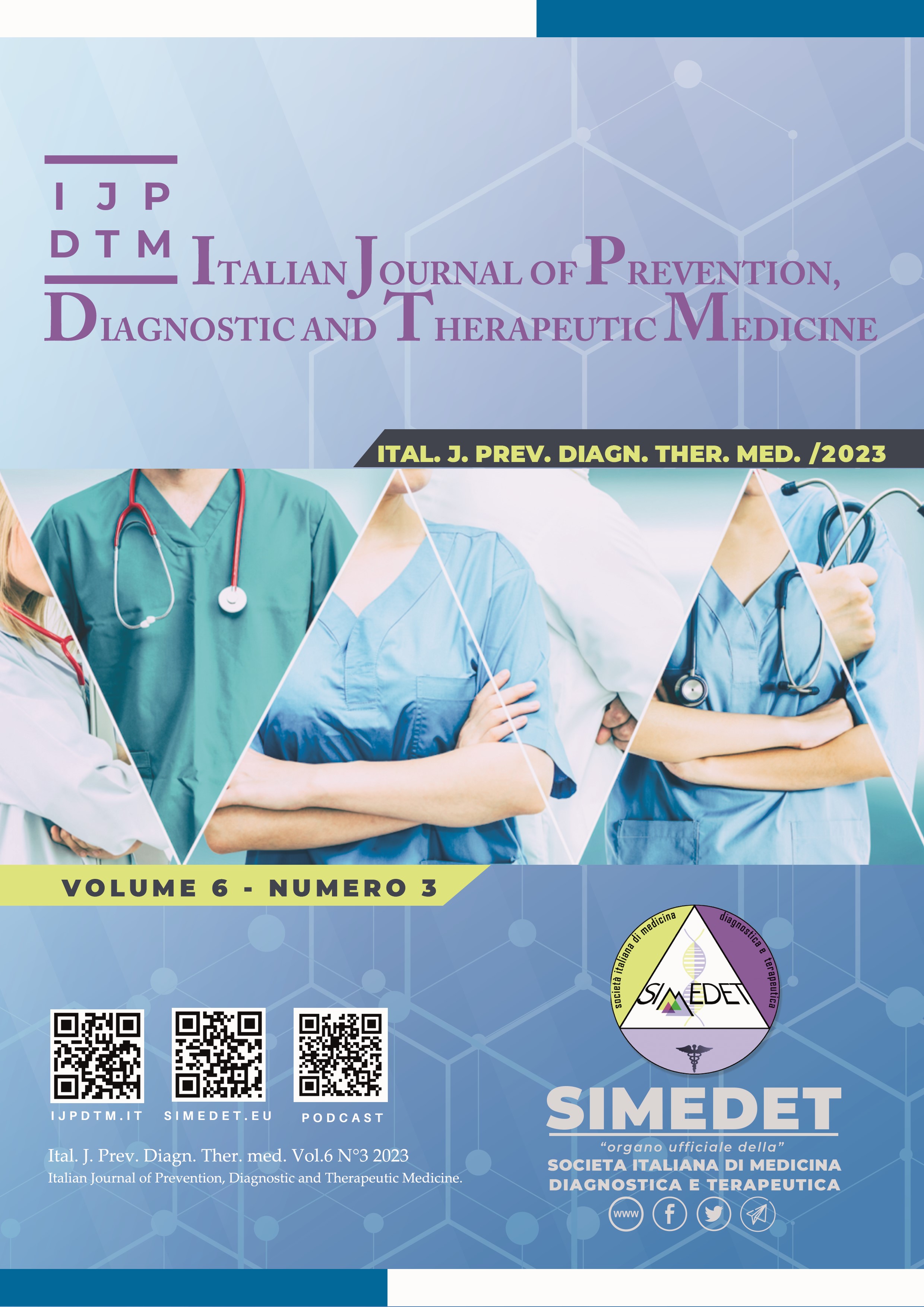The inclusive hospital: organizational care model for responding to special needs associated with requests for clinical intervention
Main Article Content
Abstract
In this article, starting from the definition of the concept of health according to the WHO and the biopsycho-social model, we focus on the individual's right to receive a welcome that guarantees a timely diagnostic process with an orientation and a therapeutic program adequate and personalized.
The target taken into consideration is that of people with severe intellectual disabilities who have health problems and need to use hospital services or in some cases hospitalization.
Downloads
Article Details

This work is licensed under a Creative Commons Attribution-NonCommercial 4.0 International License.
References
Hornstein S, Zantvoort K, Lueken U, Funk B, Hilbert K. Personalization strategies in digital mental health interventions: a systematic review and conceptual framework for depressive symptoms. Front Digit Health. 2023 May 22;5:1170002.
Frondizi D, Cappanera S, Commissari R, Francucci M, Rizzo M, Perugini D, Angeli L, Elisei S. The D.A.M.A. Project at Terni Hospital, Italy. Psychiatr Danub. 2021 Dec;33(Suppl 11):91-95.
McGINTY B. The Future of Public Mental Health: Challenges and Opportunities. Milbank Q. 2023 Apr;101(S1):532-551.
Heslop P, Glover G. Mortality of People with Intellectual Disabilities in England: A Comparison of Data from Existing Sources. J Appl Res Intellect Disabil. 2015 Sep;28(5):414-22.
V. Amendolagine, Da castigo degli dei a diversamente abili: l’identità sociale del disabile nel corso del tempo, State of Mind, il Giornale delle scienze psicologiche, 2014 in www.stateofmind.it (consultazione del 3/8/22).
Khosravi M, Kasaeiyan R. A current challenge in classification and treatment of DSM-5-TR prolonged grief disorder. Psychol Trauma. 2023 Apr 27. doi: 10.1037/tra0001510.
Barbier O, Penta M, Thonnard JL. Outcome evaluation of the hand and wrist according to the International Classification of Functioning, Disability, and Health. Hand Clin. 2003 Aug;19(3):371-8, vii.
8) Ministero del Lavoro, della Salute e delle Politiche Sociali, La convenzione delle Nazioni Unite sui diritti delle persone con disabilità, in www.esteri.it (consultazione del 11/12/22).
Ministero del Lavoro, della Salute e delle Politiche Sociali, La convenzione delle Nazioni Unite, cit., p.25.
L. 3 marzo 2009, n. 18.
Balogh R, McMorris CA, Lunsky Yet Al. Organising healthcare services for persons with an intellectual disability. Cochrane Database Syst Rev. 2016 Apr 11;4(4):CD007492.
S. J. Hoffman, AA.VV.,Is the UN Convention on the Rights of Persons with Disabilities impacting mental health laws and policies in high-income countries? A case study of implementation in Canada. BMC International health and human rights, 16(1), (2016), pp. 1-18.
M. Moloney, AA.VV., Reasonable adjustments for people with intellectual disability in acute care: a scoping review of the evidence. BMJopen, 2 (2021), p 11.
Lalive d’Epinay Raemy S, Paignon A. Providing equity of care for patients with intellectual and developmental disabilities in Western Switzerland: a descriptive intervention in a University Hospital. Int J Equity Health. 2019 Mar 18;18(1):46.
D. Frondizi, AA.VV., The DAMA Project at Terni Hospital, Italy. Psychiatria Danubina, (2021). 33(suppl 11),p p 91-95.
M. Koloroutis, Cure Basate sulla Relazione – Un modello per trasformare la pratica clinica, Casa Editrice Ambrosiana, Milano 2015.
Fondazione Mantovani Castorina Onlus, La Rete Nazionale DAMA in www.fmconlus.org (consultazione del 30/12/22).

